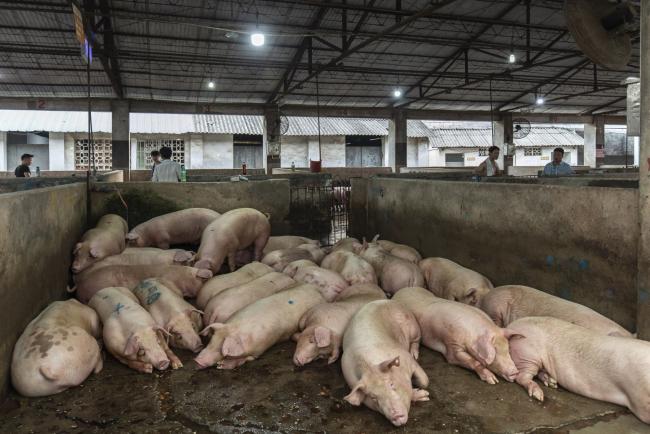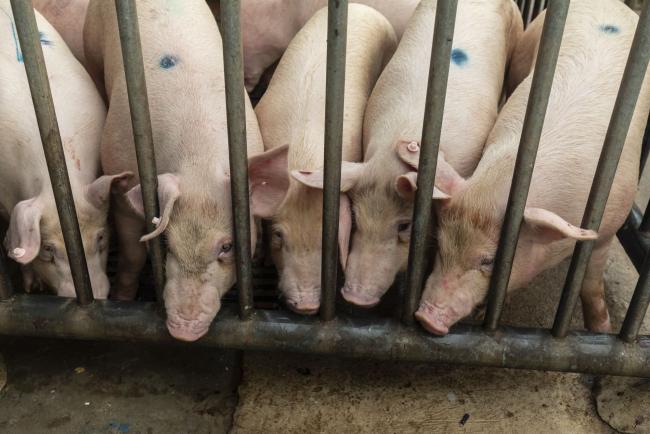(Bloomberg) -- China’s consumer inflation steadied in December while factory price declines moderated, leaving room for monetary easing to cement a recent stabilization in economic growth.
The consumer price index rose 4.5% last month from a year earlier, matching November’s rate and halting the recent acceleration fueled by surging pork prices. The producer price index declined 0.5% from a year earlier versus a 1.4% drop in November.
While pork prices -- a key element in the country’s CPI basket -- rose 97% from a year ago, that was actually slower than increases seen in October and November. They fell 5.6% in December from November.
Rising food demand during the Lunar New Year holidays is set to fuel price increases in January, but beyond that price pressures may moderate. That gives the central bank room for additional stimulus if needed after it started the year by trimming the amount of cash that lenders must hold in reserve and signaled continued action in 2020 to reduce borrowing costs for companies.
“The PBOC is likely to continue to use interest rate and liquidity tools to loosen monetary conditions in 2020, though the easing will probably be less pronounced than last year,” David Qu, a China economist at Bloomberg Economics in Hong Kong, wrote in a note. “We expect the PBOC to stick to a stance of measured easing to counter the economic slowdown.”
For the year, consumer inflation for 2019 stood at 2.9%, in line with the government-set target of 3%, while producer prices declined 0.3%. Core inflation, which removes the more volatile food and energy prices, stabilized at 1.4% in December, signaling ongoing weakness in the broader economy.
China’s economy has shown signs of recovery in recent months as global demand steadies and trade tensions ease. As commodity prices rise and factories start restocking, PPI deflation is set to continue to moderate and some see it turning positive as soon as January.
But measuring the economy’s momentum will be especially tricky in coming months. The week-long lunar new year holiday starts from Jan. 24, earlier than most years in the past century, creating a “noticeable distortion” to monthly economic indicators, according to economists at China International Capital Corp. including Eva Yi.

